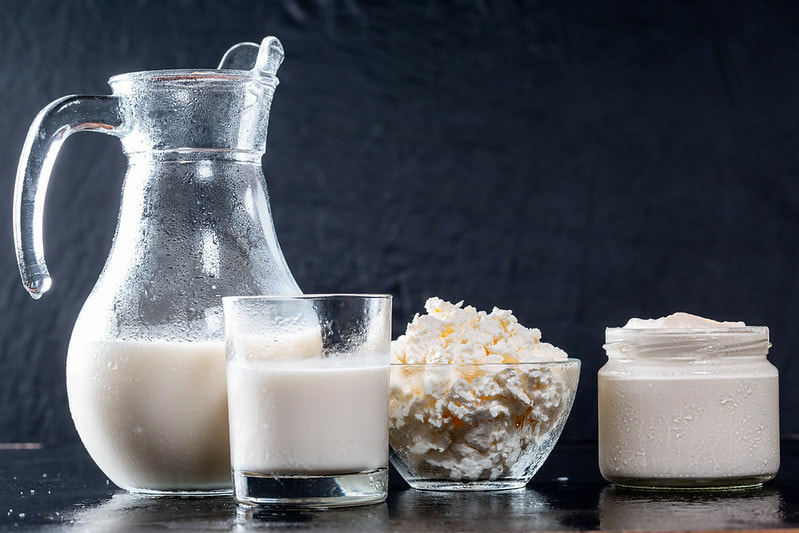|
Our bodies need bugs (bacteria, viruses, fungi, archea) to exist. These bugs, referred to as our microbiome, are a complex composition of creatures that effect our immune system, and our ability to absorb nutrients,. Declining gut bacteria are linked to increasing rates of obesity, diabetes and depression in our society.
As the levels of healthy microbiome in our stomachs have plummeted the rates of illness have soared in society. So what is destroying our microbiome? 1. the use of Antibiotics (an atom bomb for the bug culture) 2. our diet - every little thing we put in our mouths effects our microbiome 3. an increase in the pH levels of our stomach acid or low stomach acid 4. the introduction of processed and refined foods 5. pasteurization and the sanitizing of our environment and food. So what are we to do? The food industry has certainly jumped in to help solve our problems by providing us with probiotics and fermented foods. The shelves are full of yogurt, kimchi, fermented vegetables, etc. but not all contain enough bacteria to alter our gut health. Some bacteria in these products stay in our body, but most are just passing through. Of course, as they pass through they do eat, metabolize and excrete on their journey and this process does alter our microbiome but how much is questionable. Fermented foods are similiar. Most commercial products don't contain enough bacteria, or the right strains of bacteria to alter our gut biome. Hint: only buy fermented products from the refrigerated section of your grocery store. If it is not refrigerated it probably doesn"t contain enough bacteria. The most important reason probiotics and fermented foods aren't the total answer to digestive health is because our bodies might not be good "hosts" to the invited bacteria. In other words, there is no good food for the bacteria to feed off of so they leave. By changing our diet to include more fiber or prebiotics we can assist the probiotics and help them become more effective. It turns out that not only does fiber keep us regular and help control our blood sugar, it is what the microbiome like to feast on. Studies indicate that the average person only consumes 10 to 15 percent of the necessary fiber in our diet. And societies that are based on a high fiber diet have less disease and illness. including mental illness. Foods high in fiber are difficult for our bodies to digest so the microbiome love to feast on them. And conversely, if we have a diet devoid of fiber, the microorganisms will turn to eating us. This results in gut rot which leads to a host of digestive issues, food allergies and a weakened immune system. To have a healthy microbiome we need to introduce fiber rich, prebiotic foods into our diets such as: 1. Chicory root - contains inulin which nourishes the gut bacteria, improves digestion, and helps relieve constipation. Also increases bile production which helps with fat digestion. 2. Garlic, onions and leeks - contain both inulin and fructooligosaccharides (FOS) and promotes growth of good bacteria and prevents bad bacteria from growing. 3. Asparagus - promotes gut bacteria, is high in antioxidants, and may help prevent certain cancers. 4. Bananas - are rich in vitamins, minerals, and fiber. Unripe bananas are high in resistant starch which has prebiotic effects. 5. Sunchokes or Jerusalem Artichokes - are showing up at markets more often because they are full of health benefits. High in fiber, and inulin they increase friendly bacteria in colon. These are just a few of my favourite prebiotic foods that contain the special types of fiber that support digestive health and work with your probiotics to improve your immune system and prevent certain diseases. 'Try them today and your gut will thank you!
0 Comments
Your comment will be posted after it is approved.
Leave a Reply. |
AuthorSusanne Jakubowski is a holistic nutritionist, yoga teacher, Thai Yoga Therapist, and cancer survivor. CategoriesArchives
January 2022
|
Photos from mripp, nikita_nikiforov, photoheuristic.info, focusonmore.com, Jeanne Menjoulet, Scouse Smurf, Ktoine, verchmarco, Kris Krug, U.S. Army Space and Missile Defense Command (SMDC), wuestenigel, verchmarco (CC BY 2.0), Bernt Sønvisen, verchmarco, wuestenigel (CC BY 2.0), Alizarin Krimson, nillamaria, verchmarco, Per Harald Olsen, trendingtopics, wuestenigel, Markus Binzegger, JIRCAS, forthwithlife, colinpoe, BladDad, Stephen Pearson, UNDP Ukraine, GreenFlames09, jlodder, mealmakeovermoms

 RSS Feed
RSS Feed
